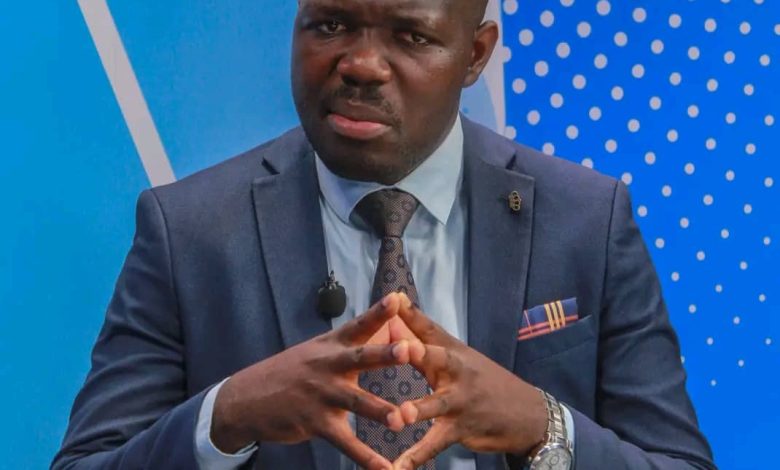Why Karim Khan lacks moral authority to lead ICC

Opinions
No Excerpt
By Kungu Al-mahadi Adam
The International Criminal Court (ICC) was established to ensure accountability for grave crimes, such as genocide, war crimes, and crimes against humanity.
Yet, under the leadership of its chief prosecutor, Karim Khan, the ICC finds itself grappling with allegations of sexual harassment—a deeply troubling issue that undermines the institution’s moral standing.
Sexual harassment allegations against Karim Khan strike at the heart of the ICC’s integrity. As an institution ostensibly dedicated to justice, the ICC should hold itself and its leaders to the highest ethical standards.
The court often calls for accountability and justice in other jurisdictions; failing to address misconduct within its ranks would expose a troubling hypocrisy.
These allegations go beyond personal misconduct—they tarnish the court’s reputation and raise questions about its ability to administer impartial justice.
If the ICC cannot ensure integrity among its leadership, how can it expect to instill confidence in the global community or the individuals it prosecutes?
This scandal reinforces perceptions of a court riddled with double standards, where powerful figures escape accountability.
A tool of repression?
Critics have long accused the ICC of being a tool for Western powers to exert control over sovereign African nations. Established under the Rome Statute in 2002, the court claims to be independent.
However, its track record suggests otherwise. An overwhelming majority of ICC cases have been against African leaders, while Western nations and their allies—despite their involvement in global conflicts—have been spared from investigation.
The ICC has unfairly prosecuted many African leaders and politicians over the years.
Thomas Lubanga Dyilo of the Democratic Republic of Congo, became the first individual convicted by the ICC in 2012 for enlisting and using child soldiers in the DRC.
While his prosecution was celebrated as a milestone, critics questioned why similar cases in other parts of the world were ignored.
Uhuru Kenyatta while still Kenya’s then-deputy prime minister, for his alleged role in post-election violence in 2007-2008. However, the charges were dropped due to lack of evidence, leading to accusations of a politically motivated case designed to weaken African leaders.
Then the ICC issued Omar al-Bashir, the former president of Sudan, with an arrest warrant for genocide and war crimes in Darfur. Despite the warrant, al-Bashir traveled freely to several countries, exposing the ICC’s inability to enforce its rulings effectively.
The court’s selective focus on African leaders, despite war crimes and atrocities committed by Western nations, undermines its claims of impartiality. For instance, no U.S. or NATO official has faced prosecution for alleged war crimes in Iraq or Afghanistan, even when credible evidence has been presented.
The ICC’s imbalance becomes more glaring when examining its silence on issues involving Western countries. For example, the invasion of Iraq in 2003—widely regarded as a violation of international law—has not been subject to ICC scrutiny.
Similarly, the ongoing plight of Palestinians under Israeli occupation raises questions about the court’s jurisdictional reach and willingness to challenge Western allies.
African leaders and intellectuals increasingly view the ICC as a neocolonial instrument used to undermine African sovereignty.
This sentiment has fueled calls for the continent to establish its judicial mechanisms, such as the African Court on Human and Peoples’ Rights, to address crimes within Africa without external interference.
Karim Khan’s leadership comes at a time when the ICC is already struggling to defend its relevance. The allegations against him exacerbate the court’s crises, drawing attention to its internal dysfunction and ethical lapses.
These issues are symptomatic of a larger problem: the ICC’s inability to navigate its dual mandate of justice and political neutrality.
Under Khan’s tenure, the court’s legitimacy faces erosion from within and without. His presence as chief prosecutor, despite the allegations, sends a disturbing message: accountability is demanded of others but not practiced internally. This contradiction weakens the ICC’s ability to inspire confidence in its mission.
To salvage its credibility, the ICC must address the allegations against Khan with transparency and integrity. An independent investigation into the claims of sexual harassment is essential, and if the allegations are substantiated, Khan should step down.
Leadership must embody the values of justice, accountability, and fairness that the ICC espouses.
The ICC was founded to uphold justice and accountability, but under Khan, its moral authority has been called into question.
The allegations of sexual harassment against him, combined with the court’s disproportionate focus on African leaders, underscore a deep crisis within the institution.




